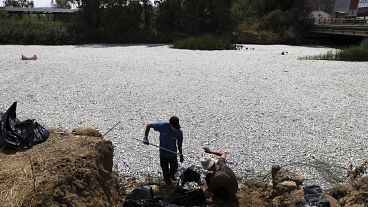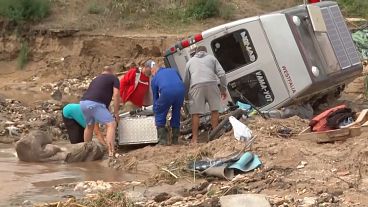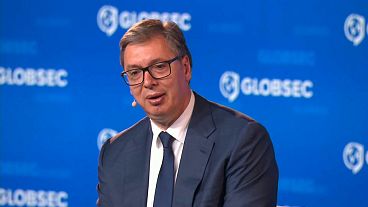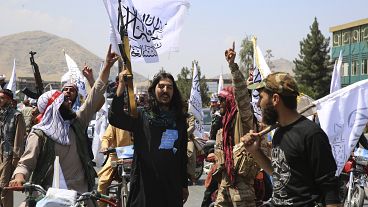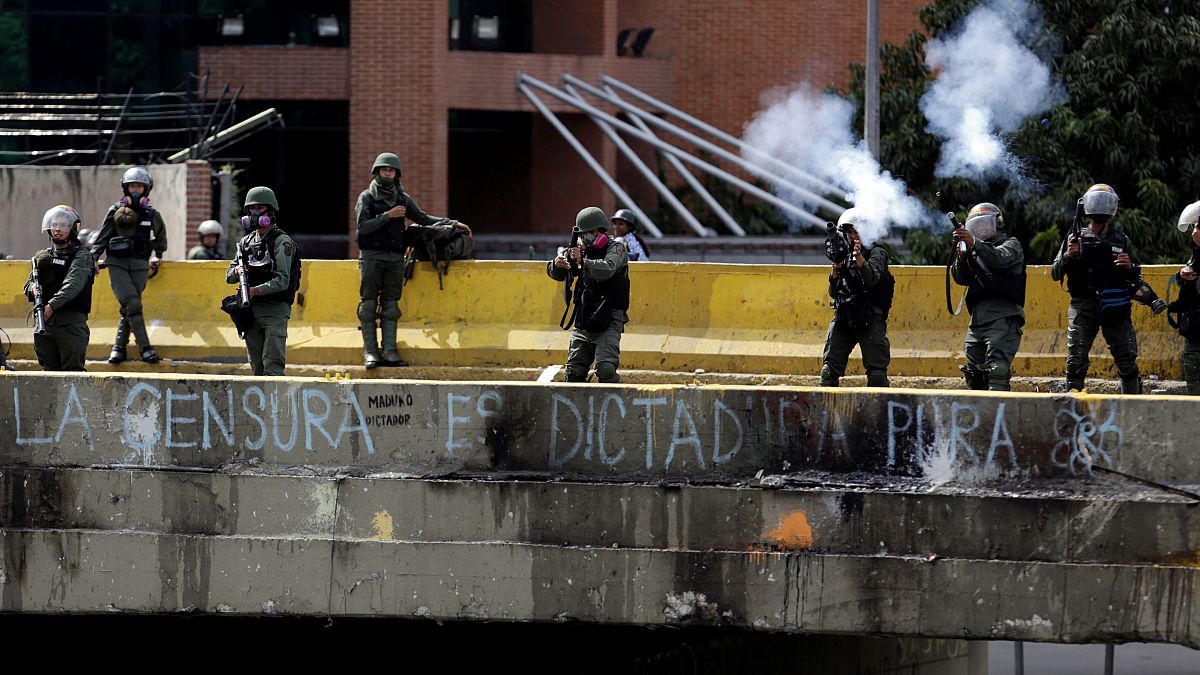A young Venezuelan explains why she had to 'escape' her beloved country and what has led to the crisis it is enduring
By Camille Bello – Venezuelan journalist
‘Fatherland, Socialism or Death’, the motto of Venezuela’s Bolivarian revolution was first pronounced in Cuba by Fidel Castro, then by Chávez, and repeated today by Venezuela’s President Nicolas Maduro. The ideology behind these three words have been taking lives since 1999, and today determine who is potentially in the line of fire. To the regime, you are either a socialist or you are dead. In fact, Maduro reaffirmed his position last week: “If Venezuela was plunged into chaos and violence and the Bolivarian Revolution destroyed, we would go to combat. We would never give up, and what we were not able to do with votes, we would do with weapons, we would liberate the fatherland with weapons.”
But what did we do to deserve this? Well, Chávez marked the end to a two party system that governed Venezuela since 1958. These political parties, Chávez insisted, only favoured the interests of the Venezuelan oligarchy. Chávez’s name was first heard when, in 1992, as an active duty Lieutenant Colonel, he attempted to overthrow a legitimate government in a classical military ‘coup’ against the then President Carlos Andrés Pérez, which ended with 105 casualties and Chávez behind bars for treason. Five years later, a political deal would see him pardoned and start a formal candidature for the presidency. Chávez won the election in 1998 with 80% approval and so began an administration “from the people and for the people”.
Those years coincided with the highest oil prices in history: Chávez was now at the helm of a country with the biggest oil reserves in the world, the 8th largest oil producer, and the 4th largest exporter. He wanted to share oil revenues with “the people”, so his social reconstruction would take away the wealth from the rich (what he called the oligarchy) and would redistribute it to ‘el pueblo’ through social programs. It can be said that Chávez brought “the poor” (often confused with “the people”) at the forefront of the public discussion in a country where 43% of the population live in poverty. Pointing the spotlight on this forgotten part of the population, was Presidents Chávez’s most important political weapon and what guided his entire administration. Chávez managed to re-write the Constitution allowing him to control the three branches of government. He succeeded in having the majority in the assembly giving him the power to implement laws by command, like when he allowed himself uninterrupted reelections.
He also created a fourth branch with the purpose of supervising the national elections, strategically implemented to control the results. Ultimately, Chávez instated a new management in the Supreme Court, National Assembly, diplomatic corps and after his third year in power censured the press almost entirely. His government favoured an extensive nationalization and expropriation plan for the main sectors of the Venezuelan economy: oil, electricity, steel, telecommunications, food production, gold, paper and cement. ‘Gestión en Rojo’, a review of 16 state-run companies done by members of the Institute of Higher Administration Studies, or IESA, in Caracas, revealed that all of them “were producing well below goals or production capacity”.
High oil prices drove Venezuela’s oil dependency from 77% of its total exports in 1998 to 96% in 2011. Today the Venezuelan economy relies almost entirely on its oil production. The management of these resources is in the hands of those who did not show disapproval to the regime. In 2003 more than 18 thousand highly-qualified employees were fired from PDVSA (Petroleum of Venezuela) for going on strike and showing their discontent. Chavez declared it “dereliction of duty” since oil revenue was in the government’s hands.
Chávez also established a strict currency control in 2003, which means that a special government agency is the only organization allowed to exchange local Bolivars to USD and provides only a limited amount per citizen or business enterprise. Various mutations of this institution have been created since the currency control first started. Nowadays companies struggle to obtain any USD at all and for regular citizens, the dollar is nothing but a pipe-dream. So, naturally, a black market has emerged in which the value of the dollar has little to do with the government controls.
Today the rates differ from Bsf 10 to Bsf 7,873 per USD, the prior is the ‘official’ rate (which does not really exist) and the second is the volatile black market rate which is only available in private transactions between citizens and industries. Venezuela’s currency has lost more the 99% of its value over the last 5 years, suffering in 2016 from an 800% inflation rate. Graced by the highest oil prices in history, Chávez subsidized the import of products such as raw material, food and medicine. He fixed prices for everything on the market, from the price of milk, to oranges and light bulbs. This, of course, stifled local production, which was unable to keep up with the heavily subsided prices of government-imported-goods.
Venezuela´s industrial apparatus was put to a halt. In other words, the economy became dependent on government-subsidized dollars. Eventually, the muscle of the economic fairy tale, namely high oil prices, collapsed and the head of the revolution, President Chávez, died of cancer a few weeks after ‘winning’ yet another election in 2013. The country was in crisis. And so the ‘hero’ with great charisma and electrifying passion who managed to put the Venezuelan so-called “oligarchy” on its knees, left the scene after asphyxiating private property, seriously damaging the productive industry and stopping the economic growth of one of the most prosperous countries in Latin-America.
As in a monarchy, Chávez designated Nicolás Maduro: ex-union leader, bus driver and Chávez associate, to succeed him. Maduro took office 3 days after Chávez’s death in March 2013, and since then has tried to salvage what’s left of Chávez legacy. Nevertheless, his poor charisma, inexistent political flair and absolute ignorance on governability have seen his popularity fall below 25%. Unfortunately for President Maduro, a barrel of Venezuelan oil now costs 41 USD. The population is in a severe state of poverty as the result of an outrageous government spending, an increasing foreign debt, a broken economy and beat-up productive system.
Rowdy pro Government groups burst inside #Venezuela Congress on its Independence Day. Several lawmakers hurt #5Jul. Video:
CaraotaDigital</a> <a href="https://t.co/fdixVvln8P">pic.twitter.com/fdixVvln8P</a></p>— Mariana_Atencio (marianaatencio) July 5, 2017
Without mentioning the 1 trillion USD disappearing from the country’s reserve. Economic problems and productive paralysis have gone on to such an extent that people don’t have access to basic needs such as food and medicine. The food crisis is so severe that 75% of the population has lost an average of 8.6 kg in weight, according to a study of the country’s National Survey of Living Conditions, conducted by three Venezuelan universities. Basic supplies such as milk, eggs and bread are impossible to find in regular supermarkets, so a side market arose where goods exist at an extreme and unaffordable price (sometimes as much as 17 times higher than at a regular supermarket). The country is lacking 80% of its basic medical supplies. For example: to cure a wound, there are no painkillers, stitches, peroxide, gloves, or syringes so the patient is asked to bring supplies to the hospital. If they don’t, they won’t be treated.
#6Jul This “Street kid” (6Y) with breathing issues caused by tear gas used to repress civilians in Venezuela
UNICEF</a> <a href="https://twitter.com/UNICEFenEspanol">UNICEFenEspanolUN</a> <a href="https://t.co/x8u8OQhMU9">pic.twitter.com/x8u8OQhMU9</a></p>— Bettica (Betticaa) July 7, 2017
People are dying from easily treatable diseases because of the shortages. According to the World Bank, the country has an infant mortality rate higher than Syria, which is in the midst of a bloody civil war. Today marks the 95th day in which millions of Venezuelans have been protesting for their rights. To date, 89 civilians have been killed and thousands wounded at the hands of the military according to the Public Ministry and the NGO ‘Foro’.
The Venezuelan people protest to put an end to a corrupt dictatorship and the little-recognised humanitarian crisis that worsens by the day. They take to the streets to demand long-overdue elections. The military routinely blocks their way with expired tear gas, violent water jets, prohibited rubber bullets, violent beatings and even live ammunition. A resistance has emerged, in the front line of the manifestations who defend the protesters with rocks and homemade petrol bombs.
#Venezuela#Caracas shopping center #Sambil fills with teargas of government repression. #SOSVenezuelapic.twitter.com/i309NV9ClB
— Michael Welling (@WellingMichael) July 7, 2017
These insurgents go to ‘combat’ with gas masks, paperboard shields and some bullet-proof vests made from X-ray plates. President Maduro’s response to this protest is to accuse the opposition of terrorism and conspiracy “only seeking to provoke and destabilize the ‘Revolución of President Chávez”. Corruption in Venezuela is ranked in the top 10 worldwide. High-ranking government figures have been charged with significant roles in international narcotics trafficking. The Observatory of Venezuelan Violence, reported 28,479 violent deaths in 2016, that number represents a murder every 18,4 minutes or 91,8 violent deaths per 100k citizens.
Due to the lack of law and order, many of these crimes are left unrecorded and unpunished. More than 3 million Venezuelans are searching for food in rubbish bins, that’s one in ten. The minimum monthly wage is equivalent of 25USD; the cost of a monthly supply of food for a family of 4 stands at around 137USD at the black market rate. Everyday life no longer exists in Venezuela, people live in a movie of terror and suspense. The recently introduced plan of the regime pretends to re-write the constitution.
But the Venezuelan streets sense how the final chapter of the saga is taking place, “this is the last chance to revoke the ‘dictadura’ or we will succumb to Communism”, a friend told me. The country screams for change, and despite the Bolivarian delusional fantasy that continues to exist in the minds of its fanatics, the country bleeds with unrest and conviction. And what about me? I am a member of that diaspora of almost 3 million Venezuelans that ran away from the policies and terror imposed by ‘el Chavismo’. I, like so many others, ran away from kidnappings, murders, corruption, ran away from insecurity and street-long lines to buy food. I ran away because my liberty was too scarred. I wrote this article while living in a foreign country, away from my family and from my beloved Venezuela. I am part of a young, politicised generation that will weave and shape the very fabric of society. Do we owe this new awakening to Chávez? We definitely do, but it does not come with a thank-you card.
Camille Bello is a Venezuelan journalist based in France
The views expressed in opinion articles published on euronews do not represent our editorial position

